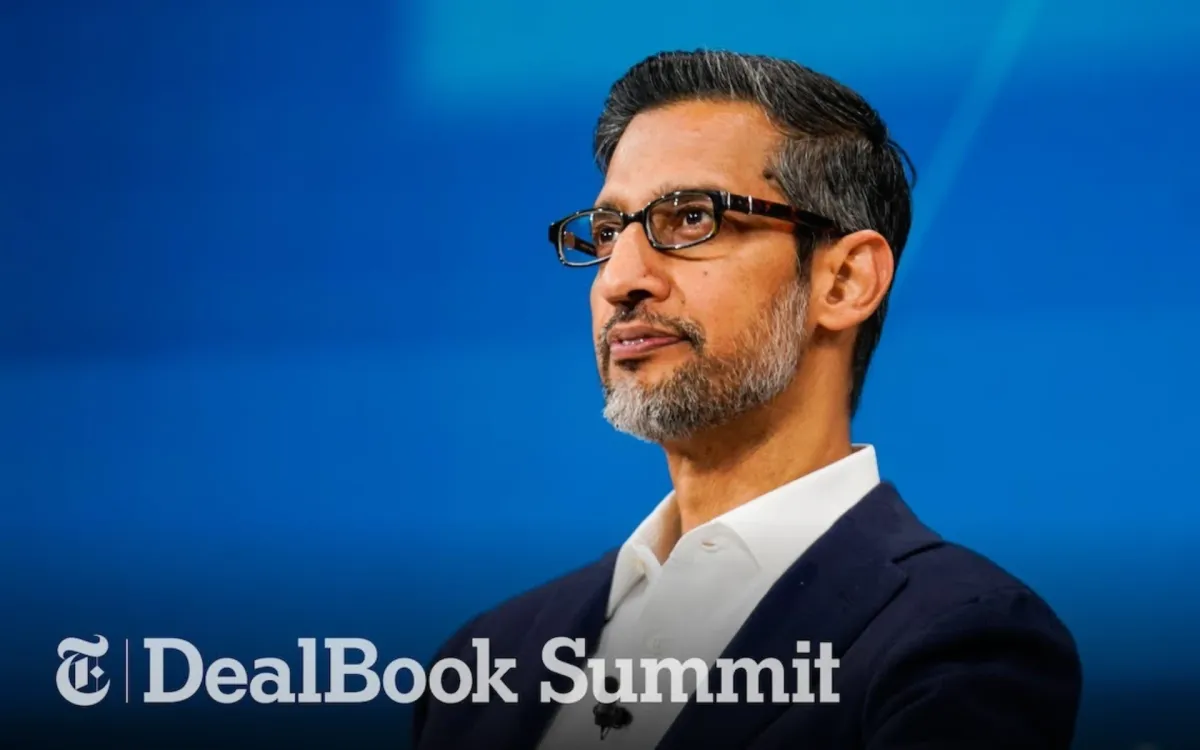
Google CEO Sundar Pichai outlined the company's artificial intelligence strategy and addressed regulatory challenges during an interview at the DealBook Summit in New York City on December 4, 2024, emphasizing Google's position as a pioneer in AI development while acknowledging growing competition in the field.
According to Pichai, Google has taken a comprehensive approach to artificial intelligence development, spanning from foundational research to practical applications. "We do world-class research. We are the most cited company and institution in the world for foundational research," Pichai stated during the interview with Andrew Ross Sorkin.
The technology giant has made substantial investments across the AI spectrum, including six generations of tensor processing units for AI infrastructure. Pichai highlighted the company's extensive reach, noting that Google provides AI capabilities to over three million developers and operates 15 products with more than 500 million users each.
Addressing competitive dynamics in the AI sector, Pichai challenged assertions about Google's position relative to other technology companies. When confronted with Microsoft CEO Satya Nadella's statement that Google should have been the "default winner" in AI given its resources and capabilities, Pichai responded directly: "I would love to do a side-by-side comparison of Microsoft's own models and our models any day, any time. They're using someone else's models."
The competitive landscape in AI has become increasingly complex, with multiple companies reaching similar capabilities in large language models. However, Pichai predicted that progress will become more challenging in 2025. "The low-hanging fruit is gone. The hill is steeper," he said, while maintaining that significant advances will continue.
In discussing the company's automated driving initiative, Waymo, Pichai revealed substantial progress in deployment. According to the CEO, Waymo has rapidly scaled from 50,000 autonomous rides to 175,000 rides per week over the past six months, surpassing one million total autonomous rides. The service currently operates in six to seven cities, with plans to expand to approximately ten major U.S. markets by next year.
The Department of Justice's antitrust case against Google remained a significant topic of discussion. The lawsuit, which began under the Trump administration, questions Google's market dominance and practices. While Pichai acknowledged spending time engaging with regulators, he emphasized that innovation remains his primary focus. "I spent the vast majority of my time on innovation and the product innovation we need to do as a company," he stated.
Addressing the evolution of search technology, Pichai defended Google's market position by highlighting the company's continuous innovation. He noted that Google has actively integrated AI into search functions, with features like AI overviews and Gemini now serving over a billion users. "Search itself will continue to change profoundly in 2025," Pichai predicted, suggesting users should expect significant new capabilities.
On the topic of content licensing for AI training, Pichai confirmed that Google has established licensing agreements with various content providers. "We are licensing data from Reddit, we license data from AP, we license data from New York Times," he said, indicating the company's commitment to addressing intellectual property concerns in AI development.
The CEO also discussed shifts in Google's corporate culture, particularly regarding employee activism. Pichai emphasized a renewed focus on mission-aligned work rather than personal platforms. "A workplace isn't where you can reconcile all those differences. You're there because you believe in the mission," he stated, reflecting broader changes in Silicon Valley's approach to workplace activism.
Looking toward the future structure of Alphabet, Google's parent company, Pichai suggested that some of the company's "other bets" could become independent public companies within a ten-year timeframe, though he declined to specify which divisions might be spun off first.
The interview took place against the backdrop of Google's reported $37 billion in revenue and its maintenance of over 90% global market share in search. YouTube now boasts more than 2.5 billion monthly logged-in users, while Android powers over 70% of smartphones worldwide, demonstrating the company's continued dominant market position despite mounting competitive and regulatory pressures.

